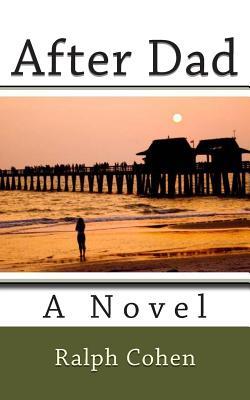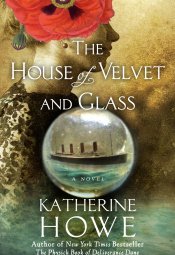 "He was always there for me," Jenny Kovacek says in the opening of the novel After Dad, and indeed, her father is such a charismatic force in the family that despite his untimely passing, he continues to have a dynamic impact on his survivors. Set mostly in Southern California during the tumultuous 1960s, Ralph Cohen's debut novel tells the stories of the man's three children and widow as they cope with their loss. Though missing, the father is never far from their minds, and during critical moments in their lives, he seems to reach out in various ways, from simple memories of touch and voice to artifacts left behind to a sense of his ongoing existence. How each of the family members responds to his lingering presence leads to results that are by turn comic, tragic and transformative.
"He was always there for me," Jenny Kovacek says in the opening of the novel After Dad, and indeed, her father is such a charismatic force in the family that despite his untimely passing, he continues to have a dynamic impact on his survivors. Set mostly in Southern California during the tumultuous 1960s, Ralph Cohen's debut novel tells the stories of the man's three children and widow as they cope with their loss. Though missing, the father is never far from their minds, and during critical moments in their lives, he seems to reach out in various ways, from simple memories of touch and voice to artifacts left behind to a sense of his ongoing existence. How each of the family members responds to his lingering presence leads to results that are by turn comic, tragic and transformative.
*Contains Spoilers*
Ralph Cohen writes a real and raw story of what happens to a family in the 1960s after the father dies unexpectedly from a heart attack in his novel, After Dad. Interpreting this title, a reader would think that it literally means "after Dad" died, but there is another way to see it. For a few characters it seems to mean following "after Dad." Or even, going "after Dad." Readers will witness this family's struggle and be entertained, appalled, afraid, worried, and hopeful for the Kovaceks.
The family consists of Ruth, the mother, and Jenny, Margot, and Toby, the three children. Frank Kovacek, the father who dies, was always imaginative and inspiring to his children. He'd tell them tall tales of his younger years, his soldier years, and how he fell in love with their mother. The three children undoubtedly loved their father and so did Ruth, even though it wasn't always easy.
Jenny is the most imaginative of the children. She dreams herself to other places and believes that Frank is with her, everywhere. She isn't the best student and struggles after high school ends. Readers will connect with her sympathetically after a horrifying (and inappropriate) encounter with an older man. Her family believes that her behavior stems from not going to her father's funeral and that's probably true, along with a few other things. She's picked on at school through a long duration of specifically targeted pranks. However, she survives. It isn't easy for her, discovering herself and her place in the world, but she goes on to win a scholarship to the same college her dad attended, following in his nearly forgotten footsteps.
Toby is the second most imaginative child and was quite young when Frank passed. He becomes a pretty troubled young man. Beginning with an unfortunate accident with a chain saw, leaving him with a disfigured hand and the status of an outsider. Readers will understand his outbursts and misguided sense of morality. Though he seems to be a good kid, his life becomes increasingly hard. Toby turns to breaking and entering to make him feel like he has a father. He disappears into homes, hiding, pretending, dreaming of a different world. Often, leaving with a small memento, which gets him caught by the police. He ends up in a juvenile detention center and hope slowly erodes to fear. Readers will be appalled at what happens to Toby. I know my jaw dropped open for a full minute. A difficult ending for a difficult young boy.
Margot is the least imaginative of the children, but still feels her father with her at times. She turns from her family, needing to escape the darkness. But without a guiding light, Margot stumbles upon tough times as well. She's a smart girl who dabbles in acting, like her father. She chooses this path to be close to him again and finds that the feeling of connection is fleeting. Margot attends a community college and is reconnected with a girl from high school. This situation leads to her meeting Art and consequently getting married, though I'm not sure if she loves him or just felt like it was the next step. Margot then has a baby and experiences post-partum depression. Readers will connect with Margot through these struggles. I think out of all the characters, Margot is the only one that achieves happiness within the novel's confines.
Ruth doesn't garner much attention throughout the novel. She dates a bit after Frank passes, but her love is for him. It's obvious that she misses him and struggles to make enough money to provide for her children after he's gone. The novel ends with a dreamed conversation between Ruth and Frank, after the children have all reached their final places. These shared words will truly touch the hearts of readers, solidifying their connection with the family as a whole. After Dad is an account of one family's history without apologies, without a sweet dusting of sugar. It's real and uncertain. It's simultaneously sad and hopeful. And it isn't for everyone. The level of emotion and certain situations are only for the mature reader though the connection created between characters and readers is definitely one of strength.
Rating: 4/5 Cups
















